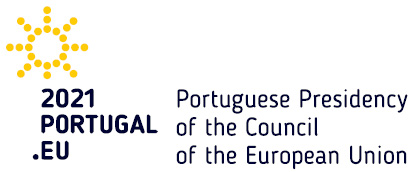Within the European Union program supporting recovery of flood- affected areas in Serbia, DRC together with Eneca delivered to brother Tauz, small entrepreneurs from Ub Municipality, a compressor for driving source for pneumatic tools, a grinder and a set of various tools.
Browsing: Success Stories
After just two months from the day of commencement of construction works, a two –member family Ilic has been provided with decent living conditions in the newly constructed prefab house, equipped with necessary quality furniture and household appliances.
Ten years ago, in early February 2005, Serbia was covered in deep snow. The usual one-hour ride from the small town of Ljig, 80 km away from Belgrade, turned into a three-hour journey. A group of experts set off on a tour to visit CSOs’ projects, funded by the EU under the Support to Civil Society in Serbia programme.
Six women from Cicevac municipality have been trained to provide social care for people with mental disability and mental health disorders within the EU-funded project „Development of comprehensive Independent Living Support system in Central Serbia.” The project is aimed to establish a sustainable and high quality service of “home care” to persons with intellectual and mental disabilities with the provision of new jobs to social protection.
The Palliative Care Unit, which is for patients that suffer from severe, life limiting diseases, which are accompanied by chronic pain, offers the possibility of keeping the dignity of the patients and maintaining their quality of life. The Unit offers support to the patients and their families from the moment they are diagnosed with a severe disease up to the moment of intense sadness when the family is saying their last goodbyes. One such unit operates in Zrenjanin General Hospital where patients and their families have only words of praise for the staff.
After 13 years in a “temporary” camp, 97 families moved into new homes and became part of the community in northern Kosovo, as a result of EU assistance.
Accidents happen. And we would all like to think that if we were involved in one, an ambulance would be there to take us to hospital for treatment in a matter of minutes. We would also like to think that all the best equipment would be on board the vehicle in case paramedics needed to treat us while on our way there.
Since the 1800s Palić Lake, on the outskirts of the city of Subotica, in the north of Serbia close to the Hungarian border, has been a popular spa resort. But the renowned health-giving properties of the lake’s water began to evaporate in the 1960s due to extensive pollution and the uncontrolled growth of algae. Dried and dredged to remove sludge in 1971, the lake was refilled with fresh water in 1976 and a wastewater treatment plant opened. But with time, the plant’s equipment and sludge treatment processes became outdated and the quality of both the lake’s water and the local water supply deteriorated as a result. It was time for the plant to have an overhaul.
“We used to live in a cardboard village without any hygiene conditions, we slept together with rats. No human being would have endured all the things we have during the past 11 years. But thanks to this project we finally have a roof above our head” – Mr Nikolić, Požarevac, central Serbia.
In June 2012, a laboratory kitted out with the latest equipment required to develop 3D digital models and rapid prototyping of new manufacturing products opened at the Faculty of Mechanical Engineering of Kraljevo, south-west Serbia. ‘3D World’, the name which the laboratory goes by, was set up as part of the IMPuls project, designed to raise the competitiveness of manufacturing in the country’s southern central districts of Raška, Moravica and Rasina. Funded by a grant from the EU’s Regional Socio-Economic Development Programme 2, IMPuls focused its activities on transferring technological know-how in innovation at higher educational establishments in the region to 500 local manufacturing companies.



